Bunnies are generally low-maintenance pets. You don’t have to take them out for walks, and you can usually interact with them as much as you want to, not the other way around.
People who have rabbits are always telling people how wonderful rabbits are, but they aren’t without challenges.

Even though they’re easier to raise and take care of, rabbits can develop bad habits that need to be corrected. The good news is that rabbits are smart enough to learn good behaviors and stop bad behaviors. All you have to do is use patience and stick with a training plan to get it to work.
One trouble with rabbits is that some of them bite. If a rabbit bites a kid’s finger, it can traumatize them and stop them from wanting to hold or play with the rabbit as much.
For parents who got the rabbit expressly for their kids, this can be a major hassle.
If you’re dealing with a rabbit that’s biting frequently or occasionally, there are things you can do to start teaching it better behavior and stop the biting habit.
Here are 11 tips for getting your rabbit to stop biting.
Tip 1 – Look for Patterns to Their Biting
Sometimes you can spot patterns in your bunny’s behavior that triggers biting.
Maybe it happens when you or your children try to take them out of their cage or they bite whenever someone tries to pick them up. Learn when your rabbit starts biting so you can avoid the situations that cause it.
You could be doing something to stress your rabbit that makes them scared or defensive. Stopping that type of situation is a good way to get them to stop biting anyone.
Tip 2 – Spend More Time Around Your Rabbit
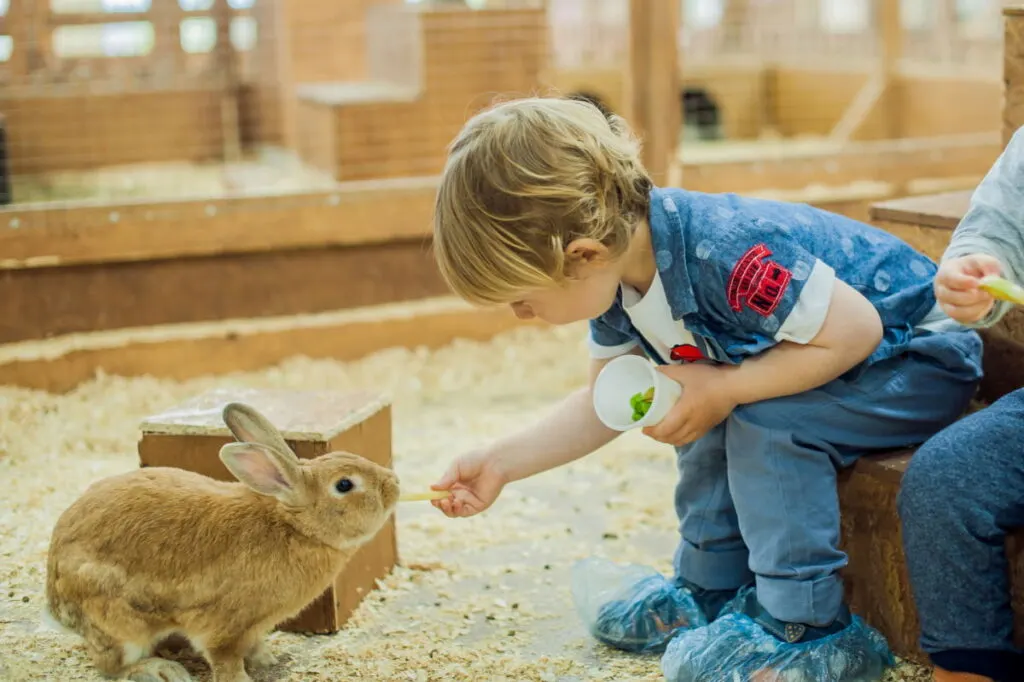
Rabbits typically bite when they are scared or stressed. Their aggressive behavior could be them acting out because they feel like they are trapped and have no other recourse. What you should do is spend more time around your rabbit in a non-threatening way.
If you feel scared of picking them up, just sit near them and let them know you’re not going anywhere.
Let them adjust to your presence. They’ll probably come up to you and sniff you, and you can talk to your rabbit in a soothing voice to help them feel calm.
Tip 3 – Use Treats
Rabbits are smart enough to respond to treats. Using treats is an effective way to encourage good behaviors. Your rabbit is much less likely to respond to any threats or yelling or any other sort of negative reinforcement.
They will, however, quickly learn what earns them a yummy treat. When you hold your bunny and they don’t bite, give them a treat. Give them treats when they hop on your lap.
Tip 4 – Wash Your Hands
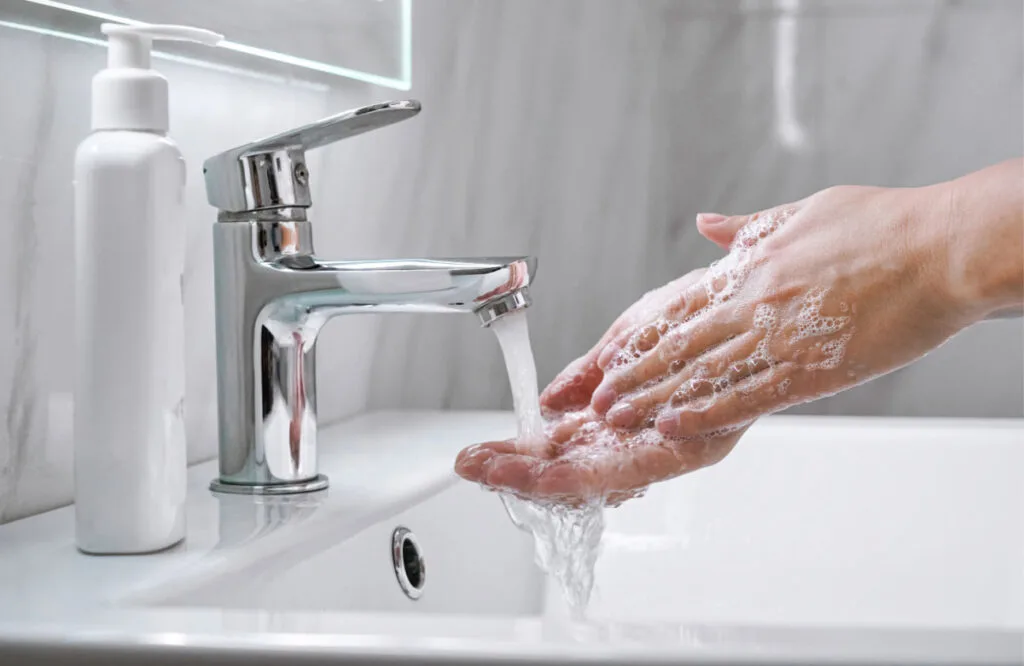
It could be your rabbit bites because your hands smell like food. Do your best to keep your hands clean whenever you want to play with or handle your pet.
They won’t catch a whiff of something and feel like they should take a nibble to see what it is and find out it’s your finger.
Tip 5 – Explore Desexing Your Option
This won’t be something every rabbit owner will want to do, but desexing your rabbit is a good way to reduce aggressive behaviors.
When rabbits reach sexual maturity, they sometimes become more territorial and aggressive. Desexing them will reduce any bad behaviors and biting will become less likely.
Tip 6 – Leave Your Rabbit Alone
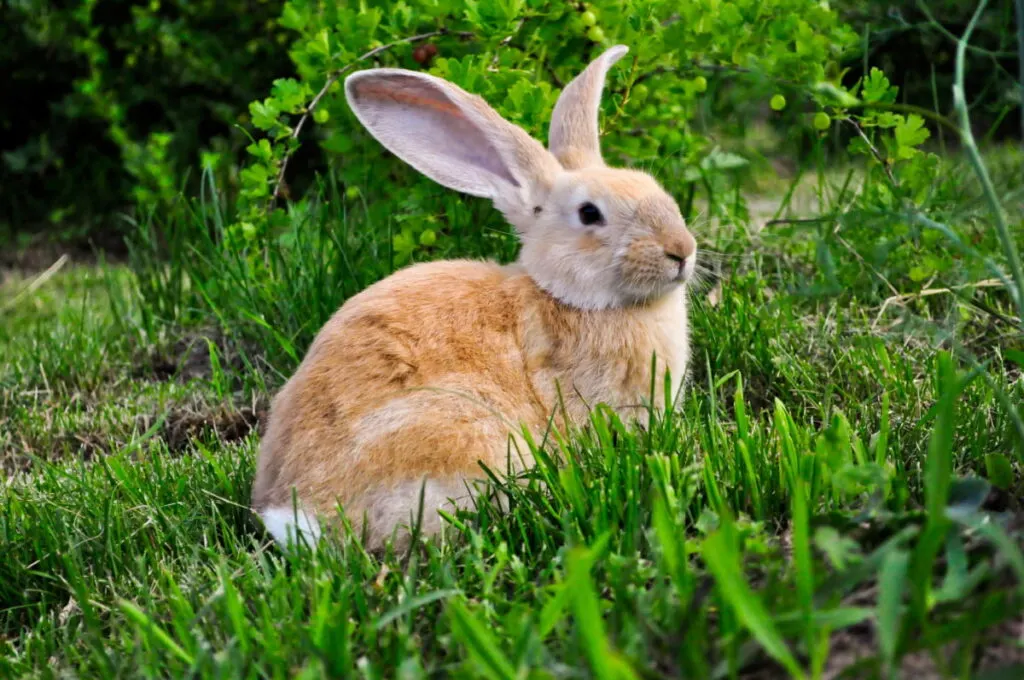
Sometimes rabbits bite because they don’t know how to communicate that they’d like to be left alone. For example, an otherwise friendly rabbit may end up biting a child because they are being overhandled. They have had enough and want some time to themselves.
If your rabbit tries to bite or successfully bit someone, give them some space until they calm down and are up for some more human interaction.
Tip 7 – Get Them a Chew Toy
Rabbit teeth grow quickly, and they often need chew toys that will keep their teeth in check. Biting could be their attempt at shaping their teeth on anything they can.
You can find a lot of chew toys online or in your local pet stores, so find something in your budget and see if your bunny will react positively to their new toy.
Tip 8 – Take Your Bunny to the Vet
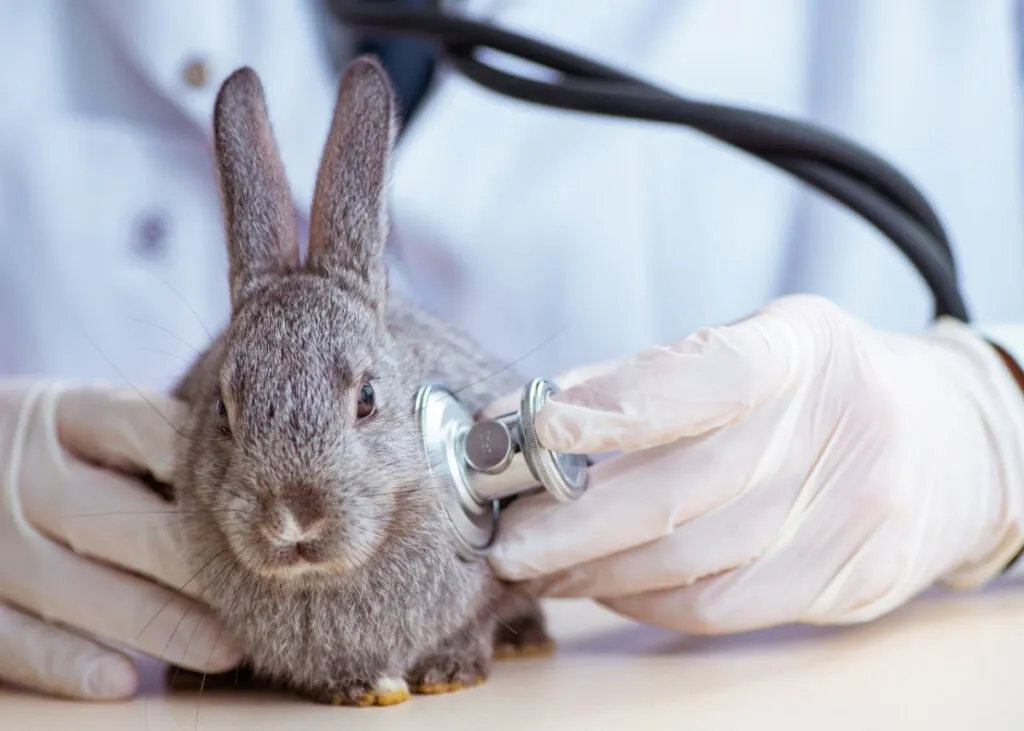
If you are at the end of your rope, you can always take your rabbit to the vet for a checkup. They could be sick or have some other health condition that’s stressing them and causing them to act out and bite you or someone else in your family.
A skilled vet can inspect your bunny and see if there’s anything that could be causing the biting. They’ll work with you on ways to encourage better behavior and avoid any bites.
Tip 9 – Use Deterrent Spray
Rabbits don’t just bite fingers. They chew on shoes, the bottom of furniture, and carpets. Thankfully, there are deterrent sprays available that you can use to make items taste bad to rabbits. It will stop your rabbit from gnawing on anything you don’t want them to.
Track areas where your rabbit likes to bite and give them a spray. You could also take something like Tabasco sauce and rub it lightly on the surface of something. It should keep your rabbit from taking a bite.
Tip 10 – Build Better Trust
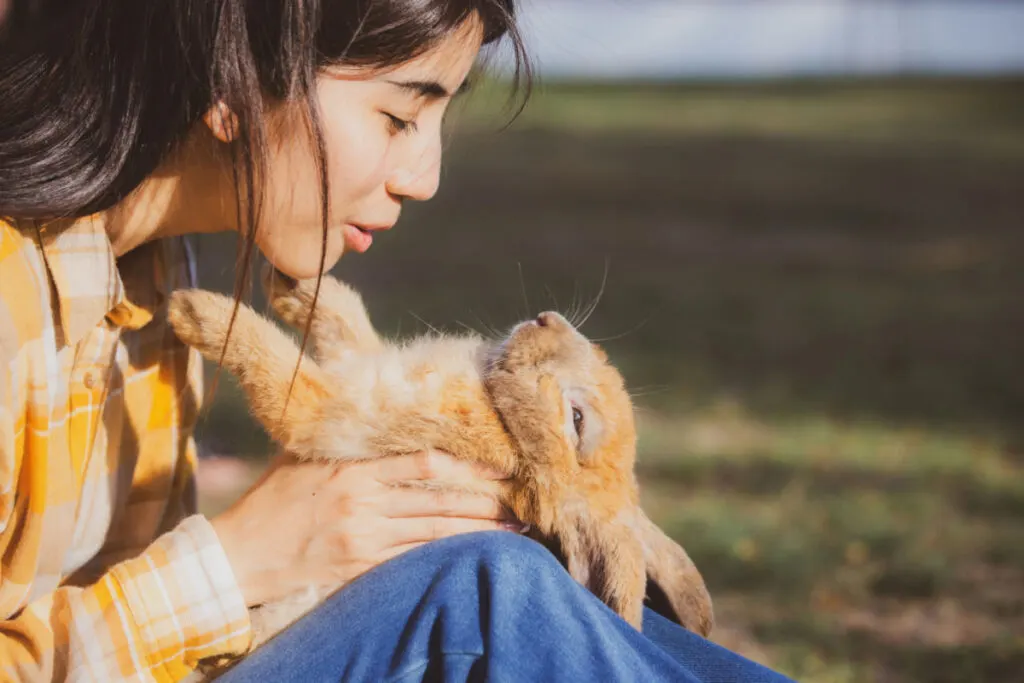
Don’t rush the relationship. Holding a rabbit before it trusts you could trigger it to bite.
Let the bunny go at its own pace when it comes to hopping in your lap or being held. You can encourage them with treats, but don’t force a rabbit to be in your lap or held when they don’t want to.
Tip 11 – Give Your Rabbit More Space
Rabbits need to know they are safe to feel the most comfortable. Yes, you’ll keep your rabbit in a cage at night in most cases, but you can let them roam when you are around during the day.
This will help them relax because they’ll know the space and learn that it’s safe in your house or apartment. When they feel relaxed, they are much less likely to bite.
